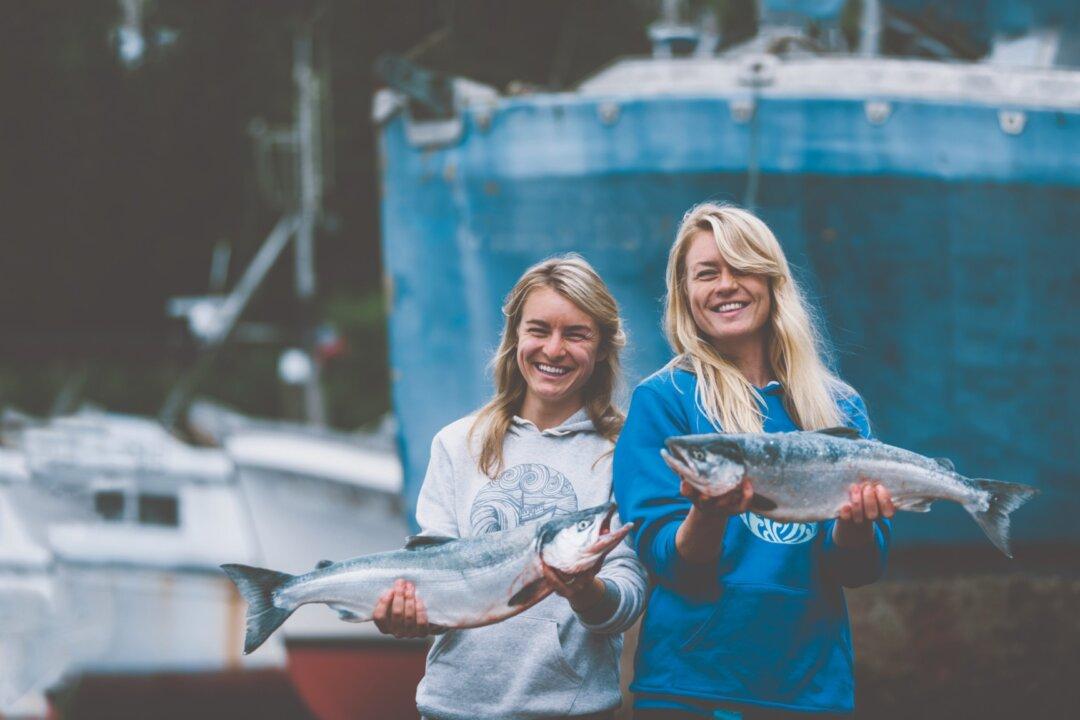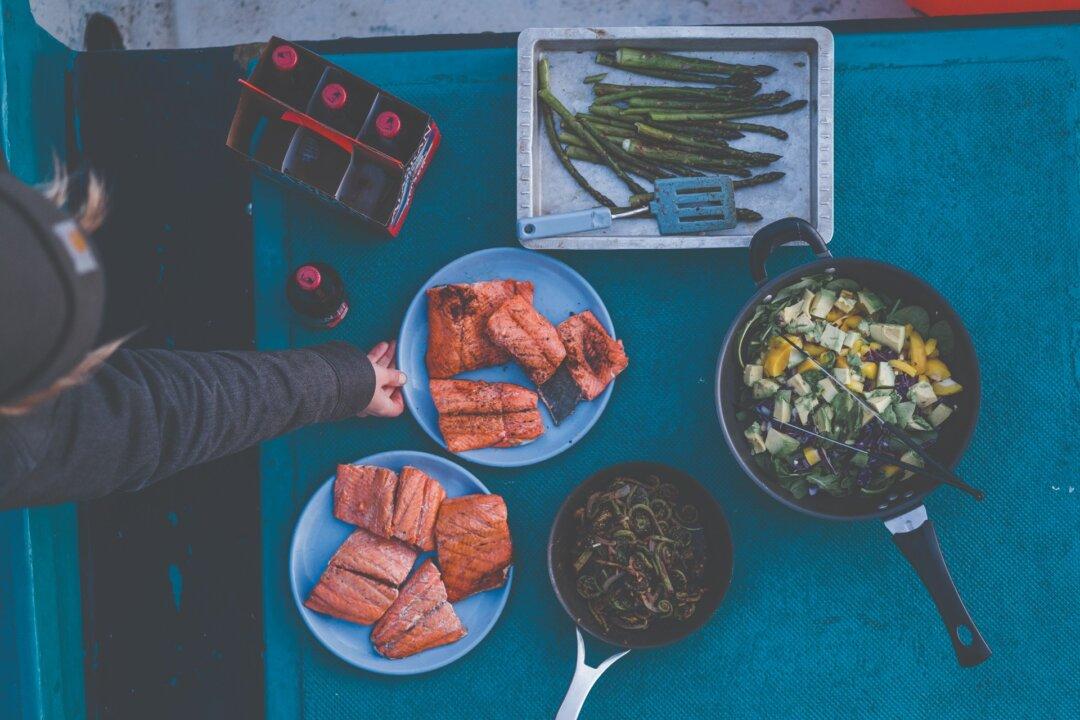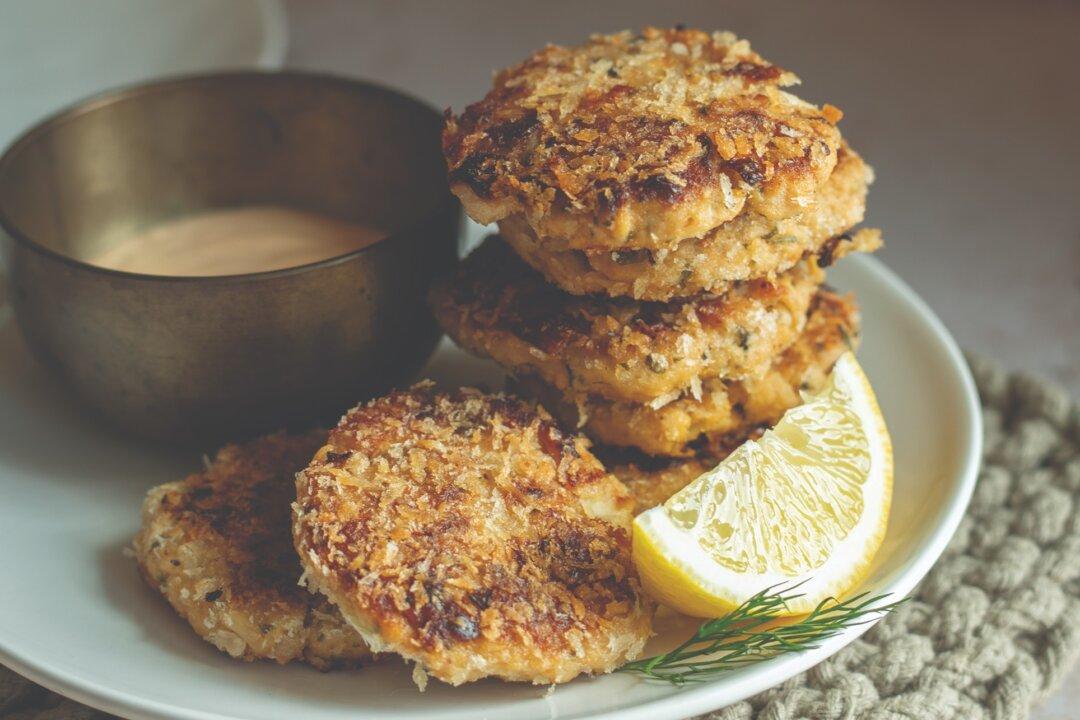Sisters Emma Teal Laukitis and Claire Neaton grew up on a homestead in Alaska’s remote Aleutian Islands, learning to live off the wild bounty of their surroundings. They spent summers on their family’s commercial fishing boat, working and living at sea for weeks at a time. Now, they’re co-founders of Salmon Sisters, a wild Alaskan fish and clothing company, and have written a cookbook, “The Salmon Sisters: Feasting, Fishing, and Living in Alaska.” It’s full of vivid, transportive storytelling and lessons from their unique way of life—including a wealth of seafood cooking expertise and recipes. In this excerpt, they share some of the rhythms, challenges, and joys of cooking at sea.
Our parents started their careers as fishermen in their early 20s, both transplants from the Lower 48. Papa got a job on a fishing boat sailing north from Seattle, and Mom answered an ad in a local newspaper for a job at a lodge in Glacier Bay National Park. After a few seasons in southeast Alaska, they moved west to the Aleutian Islands, where fishing opportunity was vast, and a small homestead on the tip of the Alaska Peninsula became their home.



